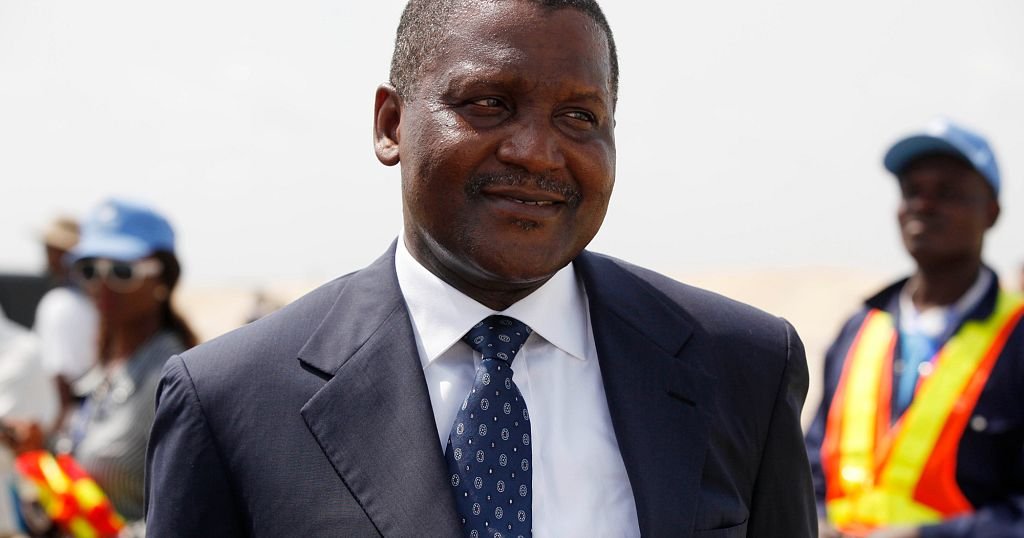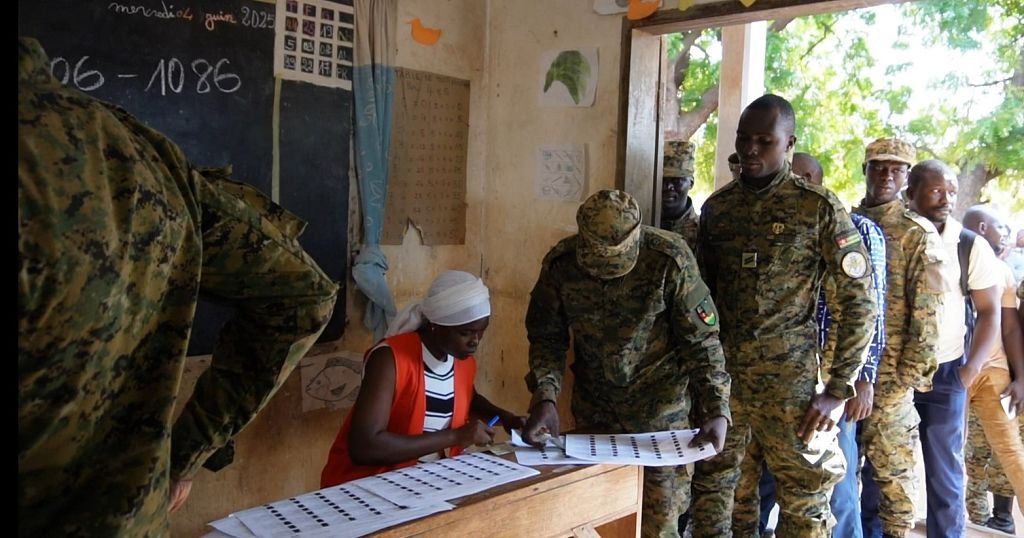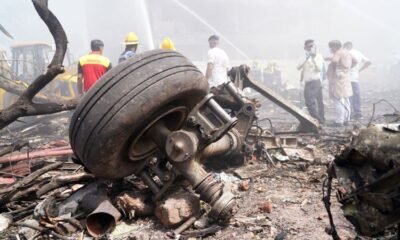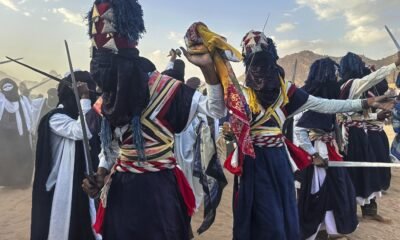Africa
Army airstrike on a market kills 18 in Mali

A separatist group in Mali said an airstrike on a market in the country’s north has killed at least 18 people. Mali’s army said its attack targeted armed militants.
The Collective for the Defense of the Rights of the Azawad People, part of a Tuareg separatist coalition, said the attack occurred 50 kilometers (30 miles) north of Lerneb in the Timbuktu region.
Seven people were also injured in Sunday’s strike, the group said in a statement late Monday, denouncing a “barbaric act from another age.”
Mali’s army said on X it carried out airstrikes on a “refuge” in the area and killed 11 “terrorists.”
The West African nation, along with neighbors Burkina Faso and Niger, has for more than a decade battled an insurgency fought by armed groups, including some allied with al-Qaida and the Islamic State group.
Following military coups in all three nations in recent years, the ruling juntas have expelled French forces and turned to Russian mercenary units for security assistance instead. Since seizing power in 2021, interim president Assimi Goita has struggled to curb violence in Mali, while the army has has been accused of targeting civilians.
Last month, the Front for the Liberation of Azawad, the coalition of Tuareg separatist groups, accused the army and Russian mercenaries from the Wagner group of “coldly executing” at least 24 people in northern Mali.
A possible reason for the contradicting information about the latest attack might be that the military targeted militants in civilian-populated areas indiscriminately, said Rida Lyammouri, senior fellow at the Policy Center for the New South, a Moroccan think tank, adding that jihadi fighters are known to visit markets to obtain supplies.
“The Malian army may have deemed the targets significant enough to accept a certain degree of civilian casualties, but these would not be the primary goal,” he said.
Lyammouri said another explanation could be that both the army and separatists misrepresented the identities of those killed to bolster their narratives.
The army might point to it as combating extremism, while the separatists might allege human rights allegations, “legitimizing their goal of greater autonomy or separation from the Malian state.”
Africa
Dangote submits paperwork to build “biggest, deepest” port in Nigeria

Fertiliser, oil, liquefied natural gas, cement… The Dangote conglomerate, a group owned by Africa’s richest man, Aliko Dangote, is active in a range of industries.
Exporting its many products is key for the group – and now, plans for a new port could help with that.
Dangote reportedly submitted a construction proposal for a seaport located in Ogun state in southwestern Nigeria to the regional authorities in late June.
The project could be the biggest and deepest port in Nigeria. According to the proposal, the port would be constructed in the Olokola Free Trade Zone, a project initially abandoned by Dangote over unresolved issues with the previous local administration.
The port’s planned location is around 100 km away from key Dangote fertilizer and petrochemical plants in Lagos. Initially, these plants were supposed to also be located in the Free Trade Zone in Ogun state, but the stalled negotiations between the conglomerate and the state’s previous administration led to plants eventually being built near Lagos.
It is for now unclear whether the proposal for the new port has been accepted.
Africa
Islamic preachers in Burkina Faso rally against social media hate

Nearly 250 imams and Islamic preachers joined a national awareness session against online hate speech Saturday and Sunday, following a surge in extremist violence in Burkina Faso.
At the workshop hosted by Burkina Faso’s Federation of Islamic Associations (FAIB), attendees were handed a guide on public speaking for preachers which forbids the use of Islamic discourse to disturb stability, including insulting and violent rhetoric, RFI reported.
”We encourage Muslim youth to use social media responsibly and are committed to strengthening the ongoing training of imams and preachers on digital issues and religious communication”, the federation said on Facebook following the workshop.
Failure to comply with the new code of conduct online may result in disciplinary or even criminal sanctions: including a ban of up to two years from preaching, RFI reported.
In October, a video emerged of a preacher urging his supporters to attack members of another Muslim congregation. The incident made FAIB sound the alarm on the ”emergence of dangerous deviations in religious discourse”, according to RFI.
The growing number of social media users in Africa is a “double-edged sword”, according to a UNDP report, due to its utility for violent actors to “market extremist ideas and spread terror to different audiences around the world”.
Social media platforms can facilitate radicalisation by promoting content with emotional appeal that taps into the grievances of users and reinforces their frustrations, according to the report.
The proliferation of religious hate speech online is concerning amid a surge in violent extremism in Burkina Faso. Terrorism-related deaths in the Sahel region have soared past 6,000 for three consecutive years, making up more than half of all global fatalities, said UN Deputy Secretary-General Amina Mohammed in January.
In this time, Burkina Faso has seen a 68% increase in terrorism fatalities, making it the leading country in the world for terrorism deaths, according to UN figures.
Africa
Togo’s security forces cast early votes ahead of high-stakes municipal elections

The atmosphere was calm and disciplined on Monday, July 14, 2025, in Lomé, as Togo’s security and defense forces, including paramilitary units and members of the operational reserve, cast their ballots in early voting ahead of the municipal elections. This special vote was organized to allow them to fulfill their civic duty while remaining available to ensure the security of the general election scheduled for July 17.
At the polling station, the voting process went smoothly in a strictly orderly environment.
“There hasn’t been a single incident. So far, everything is going well, and they are voting calmly,” said Poutouli Pisseyem, the polling station president. “They follow all our instructions,” he added.
This early vote marks the official kickoff of a highly anticipated municipal election, watched closely by both the political class and a public caught between hope and caution. On the ground, the campaign is in full swing. Political parties and independent candidates are making rounds to win over voters. Supporters of the ruling party, UNIR, are focused on consolidating progress.
“Go vote, vote for UNIR, because we need continuity in the work already being done,” said Geneviève Amégnaglo, a local UNIR delegate.
On the opposition side, some leaders insist on maintaining their presence despite boycott calls from parts of civil society.
“To improve living conditions, the opposition must take part and show what it’s capable of,” said opposition leader Jean-Pierre Fabre.
Still, the apparent calm masks underlying tensions. Civil society groups have called for days of mourning on July 14 and 15, while web activists from the M66 movement have announced protests for July 16 and 17, the day of the vote.
With just hours left before polls open for the general public, the streets are watching, uncertain. Togo’s democracy is facing another major test, under close watch.
-

 Europe5 days ago
Europe5 days agoWhat will happen now that Trump has turned on Putin?
-

 Lifestyle5 days ago
Lifestyle5 days agoPhotos of Cuban women with long decorated nails
-

 Sports5 days ago
Sports5 days agoBill Ackman: Swift backlash after billionaire’s pro debut
-

 Europe4 days ago
Europe4 days agoGerman tourist found alive 12 days after she was lost in the Australian Outback
-

 Lifestyle4 days ago
Lifestyle4 days agoOne Tech Tip: All the ways to unsubscribe, after ‘click-to-cancel’ was blocked
-

 Lifestyle5 days ago
Lifestyle5 days agoCuban women spend on extravagant nail art
-

 Asia4 days ago
Asia4 days agoAir India crash: Engine fuel supply was cut just before Air India jet crash, preliminary report says
-

 Lifestyle5 days ago
Lifestyle5 days agoSebeiba festival in Algeria carries on ancient tradition




